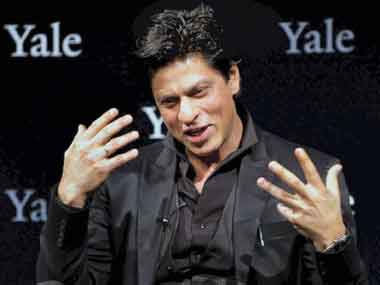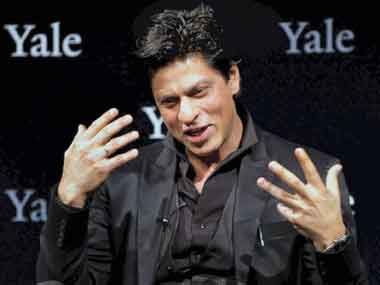Washington: There have been two kinds of reaction to the whole Shah Rukh Khan affair – it is no big deal and that it is too big a deal. The sneer in the first camp is matched only by the outrage of the second, creating a narrative which does no justice to anyone. Yes, passions are high because a series of Indian dignitaries, icons and ambassadors have faced rough treatment at the hands of US airport officials in the past few years. Former president APJ Abdul Kalam was frisked, asked to take off his shoes and jacket last year at New York’s JFK Airport after he had been cleared and taken his seat in the Air India aircraft. Two serving Indian ambassadors faced similar trouble. Former ambassador Meera Shankar had to suffer “pat down” security in public with not as much as a curtain to shield her from view while Hardeep Puri, India’s current envoy to the United Nations, had a showdown over how his turban should be checked. [caption id=“attachment_276822” align=“alignleft” width=“380” caption=“SRK arrived in a private plane accompanied by the wife of one of India’s biggest industrialists. A suspect won’t enter a country with such fanfare. In the end rules must be applied with intelligence. PTI”]
 [/caption] The Shah Rukh Khan incident tops a pile in which practically all the Khans of Bollywood, including Aamir and Irrfan, figure prominently. And it wasn’t the first time for Shah Rukh. He was detained – for the third time while entering the US – last week when he arrived in White Plains, New York, to give a speech at Yale. Immigration officers questioned him for anywhere between 75 to 90 minutes before allowing him to proceed during which time Foreign Minister SM Krishna, Ambassador Nirupama Rao, and the Indian consulate in New York were pressed into service, inviting comments about how the government never rescues the small Khans, only the big one. US officials offered a quick apology in an attempt to put the case behind them and their alacrity is commendable. But they gave little assurance that the systemic problem would be addressed. Airport security is a matter handled by Homeland Security while relations with India are dealt with by the State Department. The two bureaucracies have little institutional interaction. Shah Rukh himself was graceful about his ordeal. Meanwhile, the debate over the saga has gone meandering into invectives that are frankly not germane to what happened to Shah Rukh. All manner of diversionary details are being supplied to create walls – did he have the right visa, why doesn’t the government of India give him a diplomatic passport and be done with it. He was being questioned not because he was trying to enter on the wrong visa but because of confusion over who he really was. Something that could have been determined with the help of Google, as Javed Akhtar forcefully and repeatedly pointed out on NDTV. The “no big deal” crowd has claimed that the outrage has to do with the Indian obsession with VIPs culture because the official machinery would never spring into action for an ordinary Khan. SRK is a VIP, yes, but he is also an iconic figure for millions of Indians, most of them ordinary, who love and worship him. An insult to him goes deep and into many hearts. A politician insisting on “VIP treatment” or just fair treatment, on the other hand, would not get a second thought. The “no big deal” crowd has also said there was no “racial profiling” here. Really? I am surprised they are oblivious to the problem of racial profiling that has been consistently flagged by American Muslims and by civil rights activists. Let’s not kid ourselves — racial profiling is done by all countries trying to keep themselves safe from terrorism. It is one of those handy but imperfect tools. Shah Rukh has a last name that makes computers hyper while a “Subramaniyam” may not. How else does one explain his recurring experience? The vast US bureaucracy entrusted with security has not bothered to correct the mistake. The critics of VIP culture also say that American big wigs have faced similar treatment post 9/11 and heightened security has kept “America safe.” They cite the case of the late Senator Edward Kennedy, a major political figure, who was not allowed to board domestic flights five times in 2004 because his name figured on a watch list. It turned out that a suspected terrorist had used Kennedy’s name as an alias. The matter was resolved but only after the intervention of former Homeland Security chief, Tom Ridge and a Congressional hearing the senator convened to highlight the problem. But when a foreign national is detained, different stakes are involved. Surely the “no big deal” crowd wouldn’t approve of Kalam being treated in the manner he was. He was the president of India. Incidentally, when Bill Clinton visits India, he is accorded the highest protocol privileges India has to offer. Unwritten rules about dignity and respect for office are at play. The point is that if India allows its former president or its reigning superstar to be treated in such a manner without a complaint, how will the US system respect ordinary Indians? The United States, on the other hand, demands and gets a certain treatment for its citizens, even when they are in the wrong. The Raymond Davis case is a recent example where a man accused of killing two Pakistanis was considered important enough that even the president of the United States felt it necessary to weigh in to ask for his return. In the past, the US has taken away diplomatic immunity of foreign diplomats when a person is accused of a crime but demanded it when one of their own is involved in a mishap in a foreign country. And got it. I digress but only to make the point that rules are not always observed as those who are “not” upset by the Shah Rukh case would have us believe. And no, it was not a “random” search. He arrived in a private plane accompanied by the wife of one of India’s biggest industrialists. A suspect won’t enter a country with such fanfare. In the end rules must be applied with intelligence.
[/caption] The Shah Rukh Khan incident tops a pile in which practically all the Khans of Bollywood, including Aamir and Irrfan, figure prominently. And it wasn’t the first time for Shah Rukh. He was detained – for the third time while entering the US – last week when he arrived in White Plains, New York, to give a speech at Yale. Immigration officers questioned him for anywhere between 75 to 90 minutes before allowing him to proceed during which time Foreign Minister SM Krishna, Ambassador Nirupama Rao, and the Indian consulate in New York were pressed into service, inviting comments about how the government never rescues the small Khans, only the big one. US officials offered a quick apology in an attempt to put the case behind them and their alacrity is commendable. But they gave little assurance that the systemic problem would be addressed. Airport security is a matter handled by Homeland Security while relations with India are dealt with by the State Department. The two bureaucracies have little institutional interaction. Shah Rukh himself was graceful about his ordeal. Meanwhile, the debate over the saga has gone meandering into invectives that are frankly not germane to what happened to Shah Rukh. All manner of diversionary details are being supplied to create walls – did he have the right visa, why doesn’t the government of India give him a diplomatic passport and be done with it. He was being questioned not because he was trying to enter on the wrong visa but because of confusion over who he really was. Something that could have been determined with the help of Google, as Javed Akhtar forcefully and repeatedly pointed out on NDTV. The “no big deal” crowd has claimed that the outrage has to do with the Indian obsession with VIPs culture because the official machinery would never spring into action for an ordinary Khan. SRK is a VIP, yes, but he is also an iconic figure for millions of Indians, most of them ordinary, who love and worship him. An insult to him goes deep and into many hearts. A politician insisting on “VIP treatment” or just fair treatment, on the other hand, would not get a second thought. The “no big deal” crowd has also said there was no “racial profiling” here. Really? I am surprised they are oblivious to the problem of racial profiling that has been consistently flagged by American Muslims and by civil rights activists. Let’s not kid ourselves — racial profiling is done by all countries trying to keep themselves safe from terrorism. It is one of those handy but imperfect tools. Shah Rukh has a last name that makes computers hyper while a “Subramaniyam” may not. How else does one explain his recurring experience? The vast US bureaucracy entrusted with security has not bothered to correct the mistake. The critics of VIP culture also say that American big wigs have faced similar treatment post 9/11 and heightened security has kept “America safe.” They cite the case of the late Senator Edward Kennedy, a major political figure, who was not allowed to board domestic flights five times in 2004 because his name figured on a watch list. It turned out that a suspected terrorist had used Kennedy’s name as an alias. The matter was resolved but only after the intervention of former Homeland Security chief, Tom Ridge and a Congressional hearing the senator convened to highlight the problem. But when a foreign national is detained, different stakes are involved. Surely the “no big deal” crowd wouldn’t approve of Kalam being treated in the manner he was. He was the president of India. Incidentally, when Bill Clinton visits India, he is accorded the highest protocol privileges India has to offer. Unwritten rules about dignity and respect for office are at play. The point is that if India allows its former president or its reigning superstar to be treated in such a manner without a complaint, how will the US system respect ordinary Indians? The United States, on the other hand, demands and gets a certain treatment for its citizens, even when they are in the wrong. The Raymond Davis case is a recent example where a man accused of killing two Pakistanis was considered important enough that even the president of the United States felt it necessary to weigh in to ask for his return. In the past, the US has taken away diplomatic immunity of foreign diplomats when a person is accused of a crime but demanded it when one of their own is involved in a mishap in a foreign country. And got it. I digress but only to make the point that rules are not always observed as those who are “not” upset by the Shah Rukh case would have us believe. And no, it was not a “random” search. He arrived in a private plane accompanied by the wife of one of India’s biggest industrialists. A suspect won’t enter a country with such fanfare. In the end rules must be applied with intelligence.
Seema Sirohi is a foreign policy analyst currently based in Washington. She has worked for The Telegraph (Calcutta), Outlook and Ananda Bazar Patrika in the past, reporting from Geneva, Rome, Bratislava, Belgrade, Paris, Islamabad and Washington on a range of issues. Author of Sita’s Curse: Stories of Dowry Victims, she has been a commentator on BBC, CNN and NPR.
)